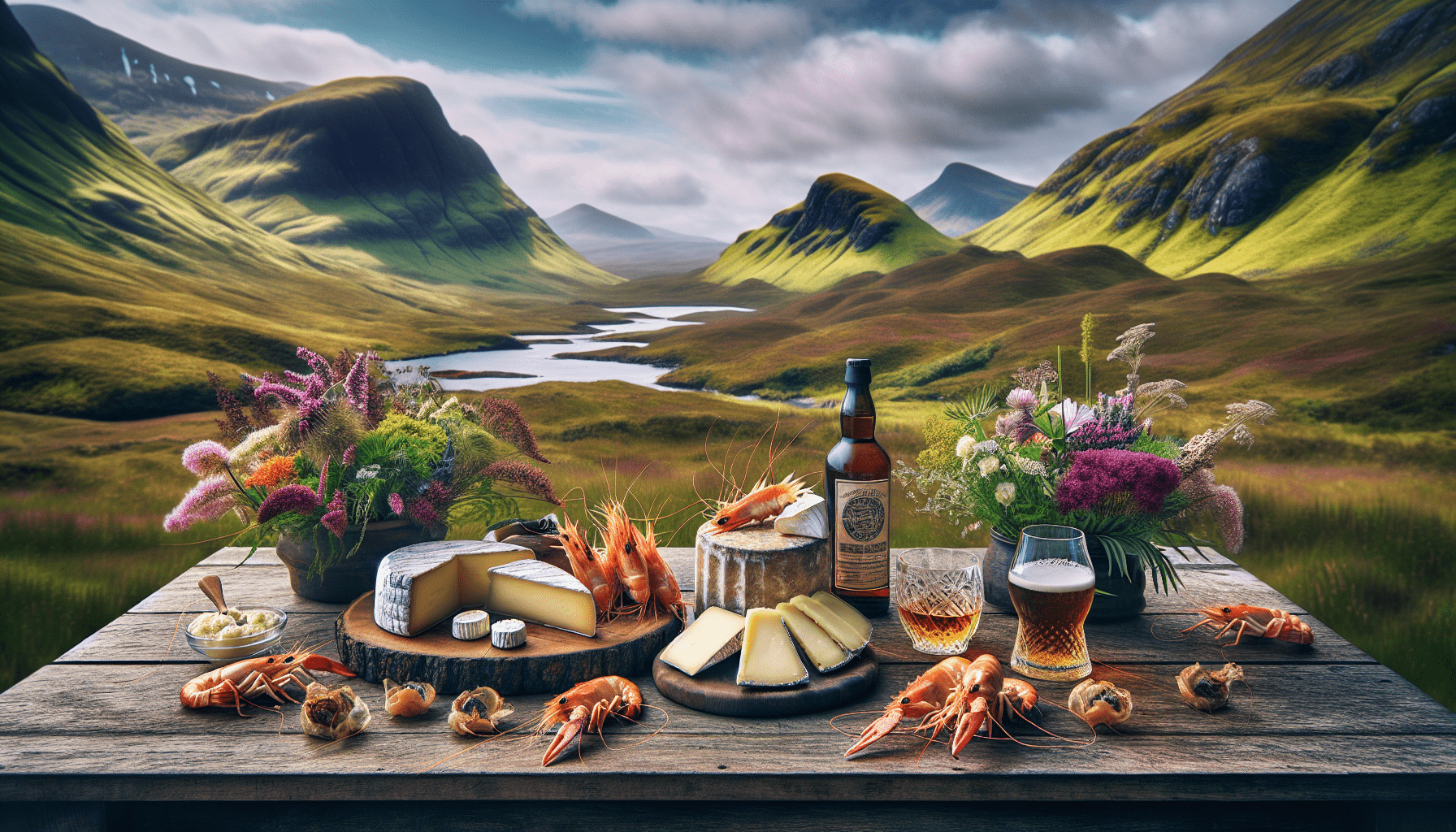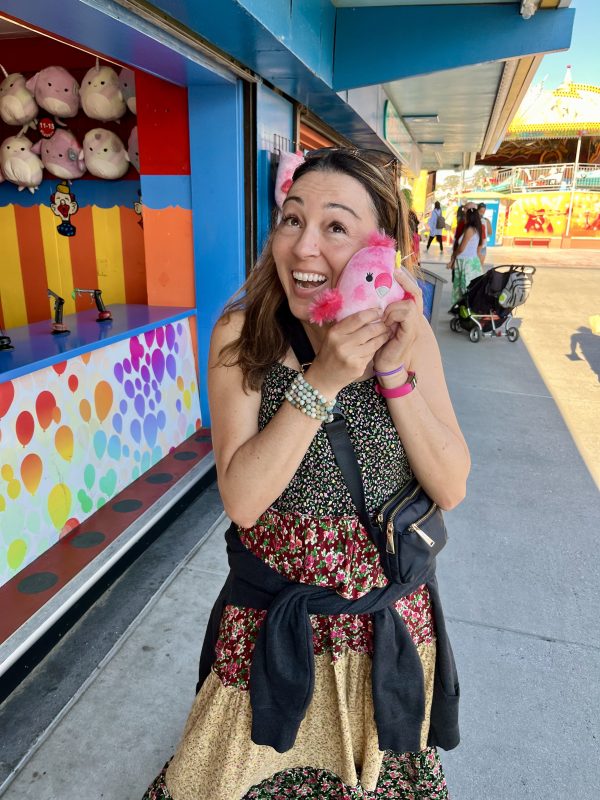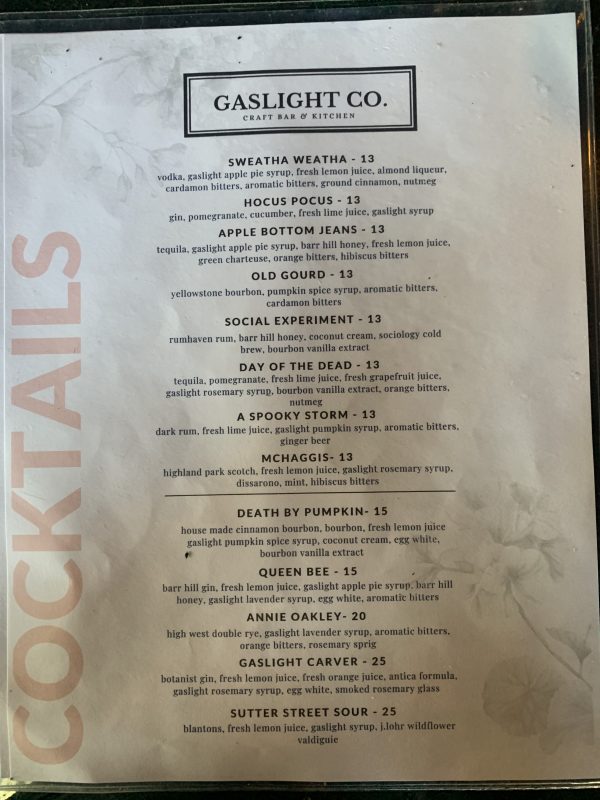BeautifyBeauties Spray Bottle For Hair – Continuous Mister Spray Bottle for Hairstyling, Cleaning, Plants, Pets, Barbers, Salons, Essential Oil Scents (10.1 Ounce)
$8.49 (as of April 24, 2025 06:56 GMT +00:00 - More info)Blair Bowman, renowned whisky consultant, broker, and Scotland’s food and drink tourism ambassador, led an exciting event focused on food and drink tourism at the Highlands and Islands Regional Food Group Conference. The panel, featuring experts Trevor Benson, Brenda Anderson, and Elsa Curry, offered an insightful exploration into how food and drink can enrich visitor experiences and boost local economies. Attendees were encouraged to engage, network, and submit their queries via the socio Q&A box throughout the 55-minute session, which ran in parallel with a net zero session.
Trevor Benson kicked off the discussions, sharing his extensive background in culinary tourism and emphasizing the growing connection people have with food and drink. He highlighted how developing food tourism can benefit everyone by enriching visitor experiences and supporting local producers. Following Trevor, Brenda Anderson and Elsa Curry provided their unique perspectives on creating authentic and immersive food and drink experiences that not only attract international and domestic tourists but also support community development and engagement.
Highlands and Islands Regional Food Group Conference Overview
Host Introduction: Blair Bowman, Whisky Consultant and Ambassador
Welcome to the Highlands and Islands Regional Food Group Conference! I’m Blair Bowman, a whisky consultant, broker, and one of Scotland’s food and drink tourism ambassadors. It’s a pleasure to host this enriching event focused on the growing sector of food and drink tourism. Whether you’re a returning attendee or joining us for the first time, we’re excited to have you with us!
Purpose and Goals of the Conference on Food and Drink Tourism
The primary aim of this conference is to delve into the significance of food and drink tourism in the Highlands and Islands. Our goals are to foster engagement, encourage networking, and share valuable insights. By leveraging the expertise of our panelists, we hope to provide a deeper understanding of how food and drink can enhance the overall tourism experience, benefiting local communities and economies.
Event Details: Duration and Parallel Sessions
Our panel today will run for 55 minutes, featuring three esteemed speakers who will each present for about 10 minutes. Parallel to this session, there is another ongoing session on achieving net-zero. Remember, this entire conference is being recorded, so you can catch up on any sessions you miss at a later date.
Access to Recorded Content: YouTube Availability
Missed a session? No worries! All of today’s conference content will be uploaded to our YouTube channel. Whether you missed a session or want to revisit certain segments, you’ll have easy access to all recorded materials. This way, you can learn at your convenience.
Follow-Up Resources: Speaker Slides, Links, and Email Pack
In about a week, we’ll be sending out a comprehensive follow-up pack via email. This will include slides from the speakers, relevant website links, and a variety of other resources mentioned today. Our aim is to ensure you have all the materials needed to continue your journey in understanding and promoting food and drink tourism.
Introduction Session
Welcome Remarks: Attendance and Engagement Encouragement
To kick things off, I extend a warm welcome to all of you! We appreciate your interest and participation. Your engagement is essential, so please feel free to connect, ask questions, and take full advantage of the networking opportunities provided by this conference.
Introduction of Speakers: Trevor Benson, Brenda Anderson, Elsa Curry
I’d like to introduce our distinguished panelists who will be sharing their invaluable insights today. We have Trevor Benson, the manager of Bannikin Travel and Tourism; Brenda Anderson, the owner of Tasting Scotland; and Elsa Curry from Bellevue Farm on the Isle of Arran. Each brings a wealth of knowledge and experience in the realm of food and drink tourism.
Special Introduction for the First Speaker: Trevor Benson
Our first speaker is Trevor Benson. Trevor manages Bannikin Travel and Tourism, a Canadian-based tourism development company. He is well-versed in the sectors of adventure, food, and culture tourism. Without further ado, let’s welcome Trevor!

Trevor Benson’s Speech
Gratitude and Excitement for Addressing the Audience
Thank you, Blair, for the kind introduction. It’s fantastic to be here with you all, even virtually. I’m thrilled to share my thoughts on food and drink tourism and what it means for the Highlands and Islands.
Background: Manager at Bannikin Travel and Tourism
I have the privilege of managing Bannikin Travel and Tourism, where we focus on tourism research, strategy development, and integrated communications. Our passion lies in co-creating value within the tourism sector, particularly in adventure, food, and culture.
Focus Areas: Adventure, Food, and Culture
Our work often intersects these three realms – adventure, food, and culture – because we believe they create enriching and unforgettable travel experiences. Each of these areas has the potential to transform how we perceive and engage with destinations.
Experience in the Culinary Tourism Sector
Before joining Bannikin, I oversaw the professional services division of the Culinary Tourism Alliance, where I managed numerous food and agri-tourism projects across local, regional, and national levels. This experience has given me a unique perspective on how food tourism can be a catalyst for positive change.
Impact of Food and Drink Tourism: Strengthening Connections and Enriching Experiences
Food and drink tourism strengthens connections between people and places. It offers an avenue for visitors to immerse themselves in the local culture, creating richer and more meaningful experiences. The pandemic has paradoxically brought us closer to our food sources, increasing our appreciation for local produce.
Pandemic’s Impact and Benefits for Local Producers
The pandemic has had a profound impact on our food systems. During lockdowns, we witnessed a surge in the popularity of home cooking and a reconnection to local produce. This shift has been advantageous for local producers, as people began to seek out fresh, locally-sourced ingredients, boosting direct sales.
Importance of Foodways in Defining Identity and Visitor Experience
Understanding foodways – the histories, heritages, and cultures behind the food and drink – is crucial in defining a place’s identity. It provides context and authenticity, enriching the visitor experience by answering the who, what, where, when, why, and how of a region’s culinary practices.
Visitor’s Perspective
Enhancement of Travel Experience through Food and Drink
From a visitor’s perspective, food and drink play a critical role in enhancing travel experiences. Whether it’s enjoying a traditional dish or participating in a farm-to-table tour, these culinary activities offer tangible connections to the destination.
Integrating Food and Drink into Tourism Experiences
The future of food tourism lies in seamlessly integrating food and drink into all tourism experiences. It’s about layering these elements into any activity, creating a holistic and immersive experience that appeals to a broad range of visitors.

Community Aspect of Food Tourism
Food Tourism as a Community Experience
Food tourism is inherently a community-based experience. It invites participation from a diverse group of stakeholders, including farmers, chefs, tour operators, and local businesses, fostering a sense of community.
Involvement of a Wide Range of Stakeholders
Successful food tourism initiatives involve collaboration across various sectors. This means working closely with local producers, marketing groups, and tourism boards to create experiences that are not only enjoyable but also sustainable.
Benefits for Broader Economy and Society
The benefits of food tourism extend beyond just the immediate economic impact. It contributes to social cohesion, preserves cultural heritage, and promotes sustainable practices, thereby bolstering the broader economy and society.
Audience Engagement
Encouragement for Questions via Socio Q&A Box
We encourage you to engage actively with our speakers by using the socio Q&A box. Note down any comments, questions, or ideas you have during the presentations, and we will address them during the Q&A session at the end.
Participation in Polls on Tourism Readiness in Highlands and Islands
Additionally, we’ll be conducting polls about tourism readiness in the Highlands and Islands. Your participation will provide valuable insights and help shape future initiatives. So don’t hesitate to share your thoughts!
Brenda Anderson’s Presentation
Insights on Food and Drink Tourism from a Business Owner
Now, let’s hear from Brenda Anderson, the owner of Tasting Scotland. Brenda will share her insights as a business owner deeply involved in food and drink tourism.
Connecting Visitors with Local Food and Drink Culture
At Tasting Scotland, we focus on connecting visitors with the rich food and drink culture of our region. We offer a mix of bespoke tours that emphasize the local flavors, stories, and traditions that make Scotland unique.
Content of Experiences: Place, Product, People, Processes
Our experiences revolve around four key elements: place, product, people, and processes. By focusing on these, we create immersive and authentic experiences that leave a lasting impression on our guests.
Importance of Immersive and Authentic Experiences
Guests today crave genuine connections and authentic experiences. Whether it’s sampling locally-made gin or enjoying an Aberdeen Angus steak, the emphasis is on creating memorable moments that resonate on a personal level.
Example Experiences: Aberdeen Angus Steak and Hills and Harbour Gin
For instance, our Aberdeen Angus steak experience provides not just a meal but a story about the region’s farming traditions and practices. Similarly, our Hills and Harbour gin experience dives into the distillation process and the unique botanicals sourced locally.
Collaboration with Travel Trade and Booking Timelines
Collaboration with the travel trade is essential to coordinate bookings and deliver seamless experiences. This requires careful planning and excellent communication to ensure all stakeholders are on the same page.
Elsa Curry’s Introduction
Family Background at Bellevue Farm on the Isle of Arran
Next, we have Elsa Curry sharing her journey at Bellevue Farm on the Isle of Arran. Elsa’s family has a long-standing heritage in farming, which has evolved to incorporate food and drink tourism.
Generational Farming Heritage
The Curry family’s farming tradition spans multiple generations, rooted in the practices of beef, sheep, and arable farming. This heritage has paved the way for the diversified operations we see at Bellevue Farm today.
Elsa’s Role in Food and Drink Tourism
Elsa has played a pivotal role in this transition, from traditional farming to becoming an integral part of the food and drink tourism landscape. Her efforts highlight the potential and opportunities within the agritourism sector.
Development of Bellevue Farm
Initial Farming Operations: Beef, Sheep, and Arable
Bellevue Farm started off with a focus on beef, sheep, and arable farming. These foundational operations have served as the bedrock upon which the farm’s current ventures have been built.
Expansion: Holiday Cottages and Farm Tours
To diversify its offerings, the farm introduced holiday cottages about five years ago, followed by the introduction of farm tours. These additions have opened new revenue streams and elevated the visitor experience.
Motivation from Rural Leadership Course
Participation in a rural leadership course by Scottish Enterprise provided a renewed sense of motivation and vision. It offered new ideas and strategies for integrating agritourism into their farm operations.
Participation in Open Farm Sunday and Positive Public Response
One of our major breakthroughs came from participating in Open Farm Sunday, where we welcomed the public to experience our farm life firsthand. The positive response from visitors affirmed the potential of our agritourism initiatives.
Growth through Advertising and Flyers
We started with simple advertising methods, like distributing flyers, to promote our farm tours. This grassroots approach helped us grow our visitor base significantly.
Custom-Built Shed Construction Delayed by COVID-19
We received funding to build a custom shed for hosting events and tours. However, construction was delayed due to COVID-19. Despite this setback, the pandemic couldn’t dim our enthusiasm or future plans.
Joining Scottish Agri-tourism Network for Support
During the lockdown, joining the Scottish Agri-tourism Network was a game-changer. It provided us with support, resources, and a community of like-minded individuals to navigate these challenging times.
Conclusion
Recap of Conference Highlights on Food and Drink Tourism
Today, we’ve explored the multifaceted world of food and drink tourism through the lenses of our knowledgeable speakers. From Trevor’s insights on the global impact of food tourism to Brenda and Elsa’s practical experiences in the field, there’s been a wealth of information shared.
Future Implications for the Highlands and Islands
The future of food and drink tourism in the Highlands and Islands looks promising. With a focus on authenticity, community involvement, and sustainable practices, this region is poised to attract more visitors and foster deeper connections.
Encouragement for Continued Engagement and Networking
As we conclude, I encourage you to stay engaged and keep the conversation going. Utilize the follow-up resources, connect with fellow attendees, and continue exploring the vast potentials within food and drink tourism. Thank you for being a part of this enriching experience. Let’s keep the momentum alive!






